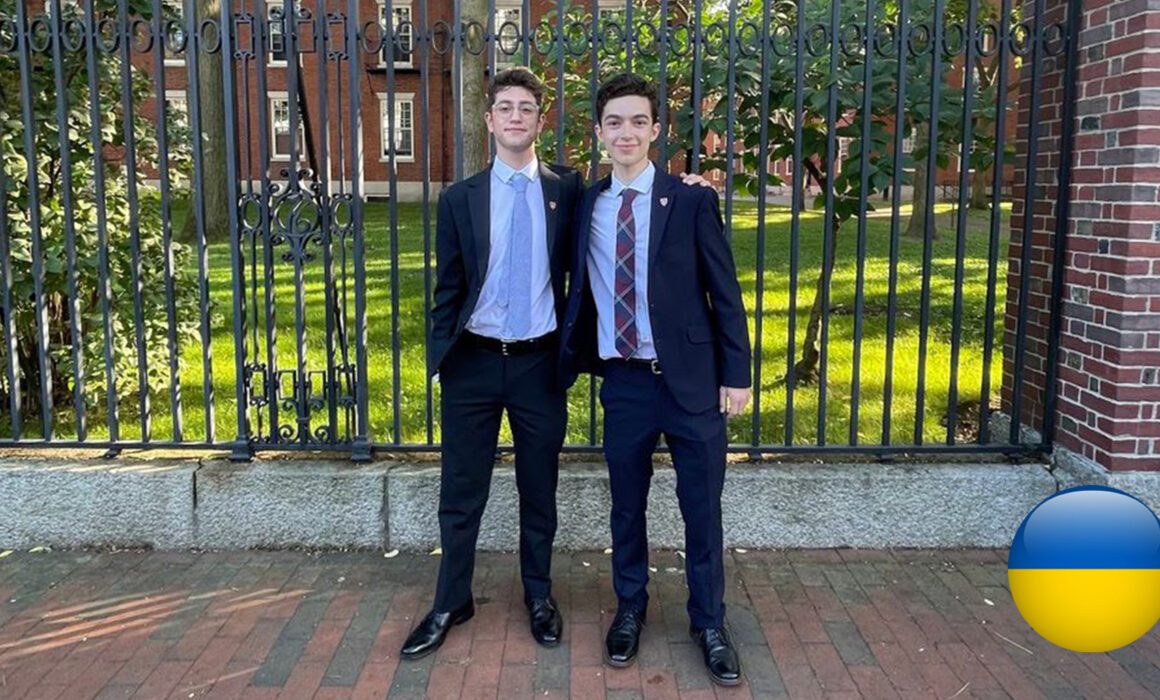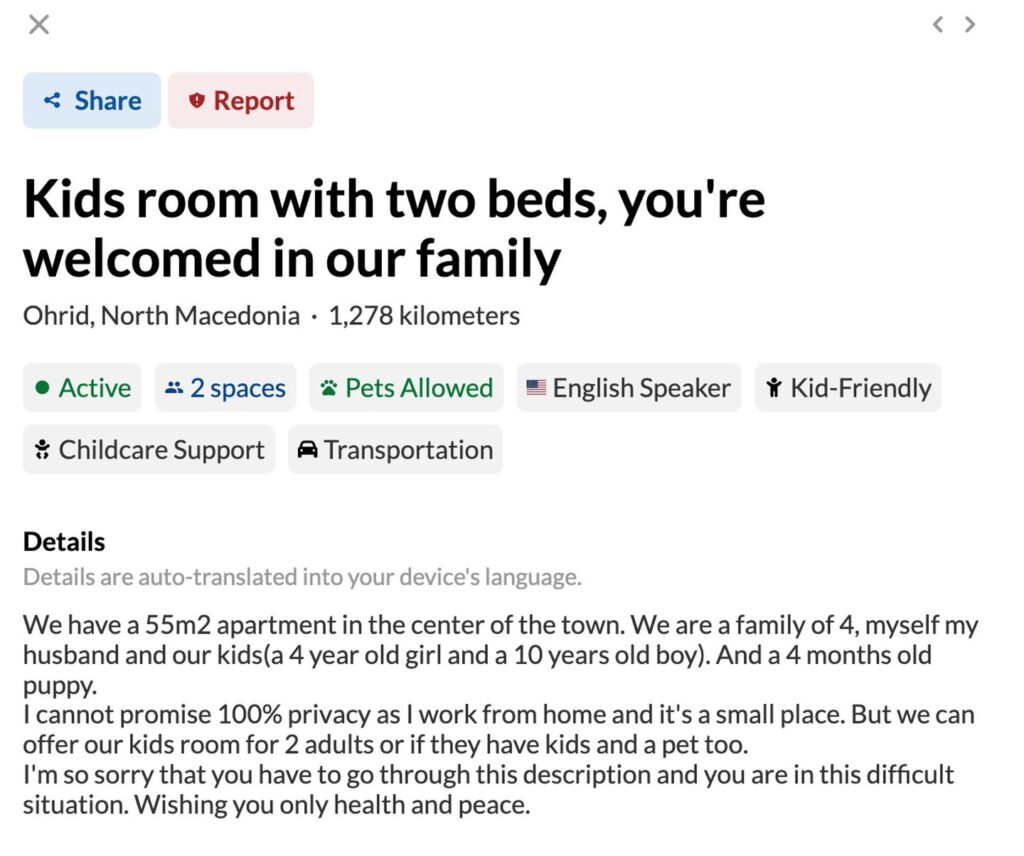
By Shannon Larson Boston Globe
Avi Schiffmann, left, and Marco Burstein at Harvard University.
After Harvard student Avi Schiffmann attended a demonstration opposing the invasion of Ukraine by Russian forces, he knew there was more to be done to address the situation and vowed to help.
Having developed his first website in early elementary school, Schiffmann fine-tuned his skills over the years, and by the time the pandemic hit, he created one of the first and largest coronavirus tracking sites worldwide. The resource garnered so much attention he was awarded the Webby Person of the Year by Dr. Anthony Fauci when he was 17 in 2020.
Watching the war unfold in Ukraine, the self-described “internet activist,” now taking a semester off from Harvard, saw an opportunity to accomplish a similar mission: delivering direct and practical tools to those in need as they fled their homeland for safety.
“I kind of just looked into what was going on in the world in terms of how these refugees are getting connected with hosts,” Schiffmann, 19, said. “I felt that the tools that were being used were very inadequate.”
He called classmate Marco Burstein, 18, the next day with an ask: Would he be willing to use his coding expertise to help design a website connecting Ukrainian refugees with those ready to offer up a place to stay?
Despite being in the midst of studying for midterms thousands of miles away in Cambridge, the Harvard University freshman said his immediate reaction was, “I’m in.”
The pair got to work, communicating via FaceTime and texts over several relatively sleepless nights — punctuated by exams for Burstein — to develop a site that would be easily accessible for both those looking to lend a hand and those seeking shelter. Schiffmann was operating out of San Diego and is now in Seattle, but he said technology has allowed for the collaborative effort to be almost seamless.
Within days, they launched Ukraine Take Shelter, a site that is “translated natively into at least a dozen languages so far” that allows Ukrainian refugees to filter out their specific needs — such as if they require disability assistance or space for multiple people — to find listings near them. The hosts, in turn, can offer shelter ranging from a single couch to an entire farm, Schiffmann said.
The two are primarily focusing on getting hosts to sign up in Europe, but listings span across the world, including from “Israel to Australia to America to Germany to France, [and] Poland — everywhere,” Schiffmann said. So far there are over 5,000 listings, with hundreds alreadymarked as filled.
Both Burstein and Schiffmann said they have been blown away by the response and just how many people have volunteered to assist with the project, whether it’s making their home available or helping with translations.
What differentiates their site from others, Burstein said, is how simple it is to use. Some of the methods typically used by refugees looking for a place to go, such as Facebook groups and government websites, can be difficult to navigate and often demand longer waiting times to get a response.
“The website is supposed to be for refugees who speak a different language and might be in a dangerous situation,” he said. “They need things to be efficient, and they need things to be intuitive.”
Ukraine Take Shelter also is designed to be as “safe and secure as possible,” Schiffman added. Refugees are not required to make an account, nor are they ever asked to provide their specific location — all they have to do is enter their current city to see what is open to them in the surrounding area.

One listing on the site, from a family in North Macedonia, offers to make their home available to refugees.Ukraine Take Shelter
Hosts, meanwhile, do have to log in to create a listing and provide necessary information about it, such as how to contact them safely and other details including whether pets are allowed.
A search forthe city of Kyiv, Ukraine for one person on March 11, for instance, turned up a number of listings — from a spacious chalet in the Romanian countryside to a home in Prague offering temporary care for a dog.
“I’m so sorry that you have to go through this description and you are in this difficult situation,” wrote one host from North Macedonia. “Wishing you only health and peace.”
Read our article in Russian.
Прочитайте це Українською мовою